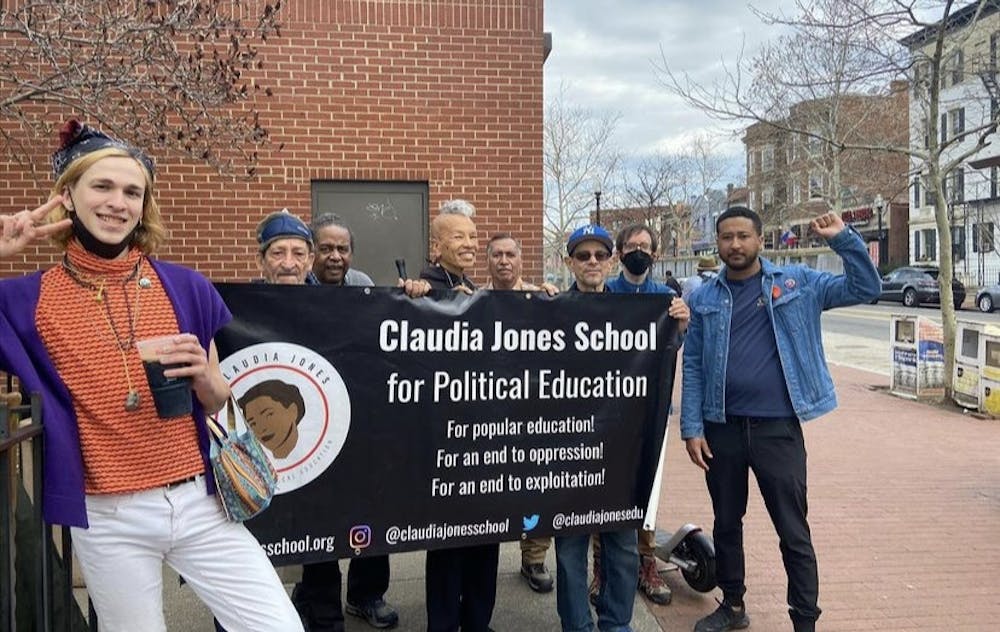The Claudia Jones Club, established at American University in January, works to provide educational tools and grow student activism on campus while creating a space for students to belong.
Claudia Jones, the journalist and activist the club is named after, was a member of the Communist Party in the mid-1900s. Jones advocated for the rights of those who, like herself, experienced what she called the “triple oppression theory,” facing oppression on three fronts for being a Black woman and a member of the working class.
Many of the organization’s goals stem from the issues she was fighting for and the larger movement of the Claudia Jones School for Political Education, based in Washington, D.C. It has become a nationally recognized club with chapters around the country.
Jack Wiant, a senior in the College of Arts and Sciences and president of the club, said the club’s main goals at AU are to educate and respond to problems that arise within the community.
“We established [a chapter] here essentially with the same goal to provide political education for a Marxist-Leninist perspective and sort of get students involved in activism not just on campus, but also in the rest of D.C.,” Wiant said.
Wiant said that although some other organizations and students on campus may not have the same beliefs as the Claudia Jones Club, he hopes to find points of unity so greater progress can be made by working together.
“It's not productive to sort of stand apart from society or apart from the student body and just say we have the correct ideas or we alone are charging forward,” Wiant said. “It's like you have to meet people where they are and that's what we're doing.”
In the spirit of unification, the club has been working on a project in Mount Pleasant to create a park for that community.
Germán Polaco, a freshman in CAS and the treasurer of the club, explained the need for a community space in that area and the 10-year battle it has taken to make the Amigos Park a reality.
On the weekend of March 19, members of AU’s club chapter met with D.C. organizers and community members to share the plan for the park.
Claudia Jones Club members are doing what Polaco believes is an essential, albeit often neglected, opportunity: branching out into D.C. neighborhoods.
“A lot of clubs do actions within their campuses, but they don’t connect that to the broader D.C. community,” Polaco said.
Community building on campus and within the D.C. area is an important tenet of the Claudia Jones Club and something they wish to impart upon the AU student body. Additionally, the club has become involved in unionizing efforts, issues of student debt relief and events to protest the University’s recent removal of the mask mandate.
Wiant and Polaco also pointed to the history of the institution of AU, warning students not to enter into the D.C. community’s space in a destructive manner.
“We have to recognize our campus is like a gentrifying force in this area, in which D.C. is historically working class; a Black city essentially,” Wiant said.
The Claudia Jones School of Political Education hosted a program last semester on the issue of gentrification which AU Claudia Jones club members attended. Poets and musicians were invited to come and speak on the topic at a local restaurant.
Within this semester and beyond, Wiant and Polaco talked about their hopes of educating AU students with events such as “Who is Claudia Jones?” on March 31.
The club hopes to make sure the life of Claudia Jones is remembered and that her efforts are carried on by the current generation.
“I think what we're trying to do is essentially become a leading force in the activist community here, especially a leading working class force,” Wiant said.





